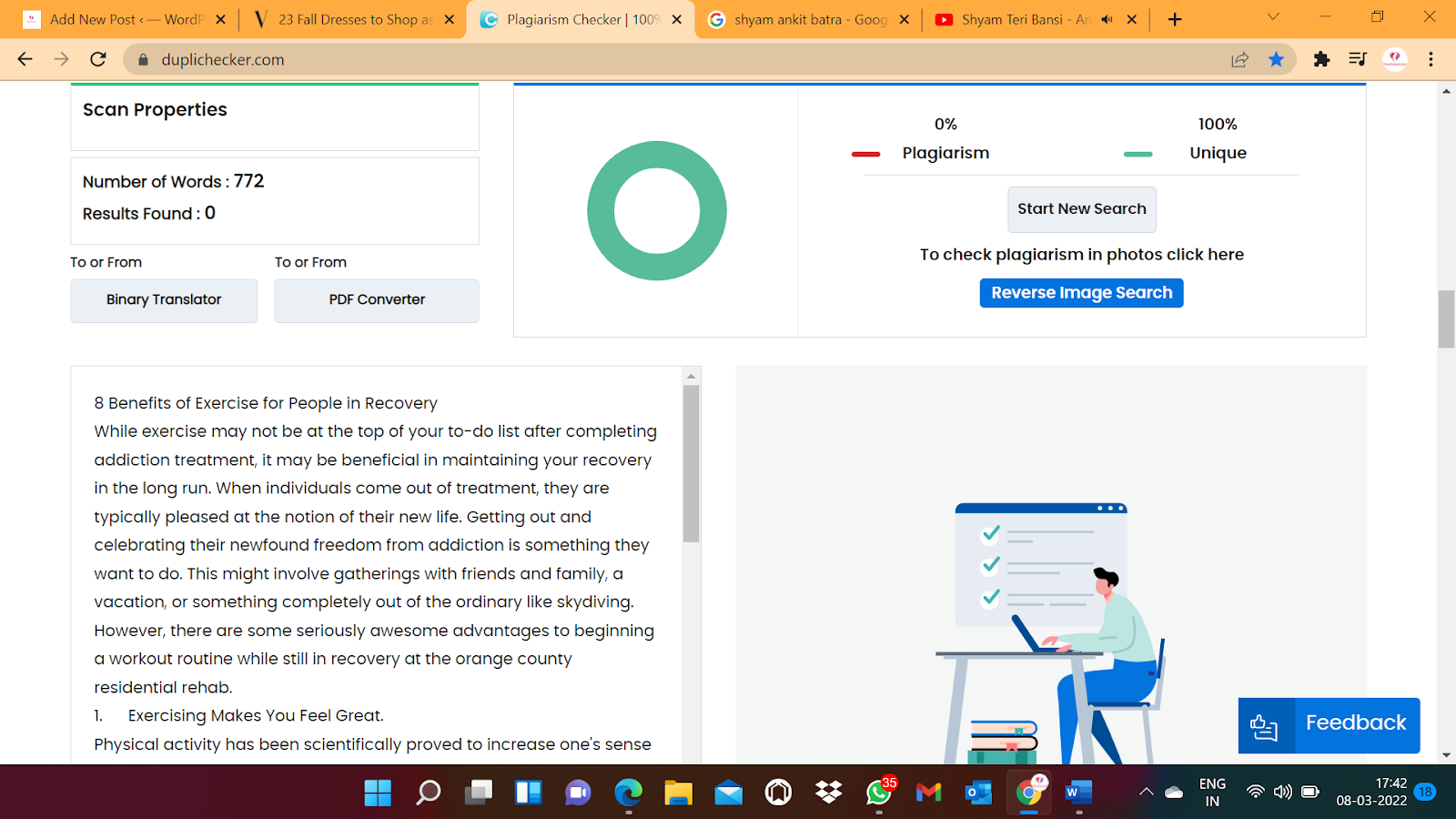While exercise may not be at the top of your to-do list after completing addiction treatment, it may be beneficial in maintaining your recovery in the long run. When individuals come out of treatment, they are typically pleased at the notion of their new life. Getting out and celebrating their newfound freedom from addiction is something they want to do. This might involve gatherings with friends and family, a vacation, or something completely out of the ordinary like skydiving. However, there are some seriously awesome advantages to beginning a workout routine while still in recovery at the orange county residential rehab.
- Exercising Makes You Feel Great.
Physical activity has been scientifically proved to increase one’s sense of well-being and self-confidence. The neurotransmitters serotonin, dopamine, and endorphins are released into the body when you engage in vigorous physical exercise. These molecules mimic the effects of drugs and alcohol on your mood.

- Stress may be relieved by exercising.
At times, juggling job, family, friends, and personal rehabilitation may be challenging. Natural stress relievers such as exercise are simply meditation in action. Focusing only on a sport, such as basketball or tennis, eliminates the need to care about other aspects of your personal life. You’ll have a fresh perspective on what’s upsetting you after 30 minutes to an hour of focusing entirely on your body’s actions. You’ll be less likely to make hasty judgments that you’ll later regret if you take a vacation from your problems.
- Exercising Helps You Manage Your Anger and Angry.
Finding ways to cope with negative feelings without using drugs or alcohol is difficult when in recovery. Workouts are a great method to release pent-up stress and resentment. You should avoid team sports like hockey and football if you’re utilizing exercise as a form of stress management. It’s possible that the game’s inherent hostility may magnify your emotional reaction. Instead, consider going for a run or lifting weights.
- Exercising Helps You Sleep Better.
Today, insomnia is a widespread problem in the fast-paced society. When the body is trying to adapt to a life free of drugs and alcohol, being in recovery may exacerbate sleeplessness. Regular physical activity may improve the quality of sleep by regulating your circadian cycles and expelling stored energy. Your mood will improve and the harm created by previous drug misuse will repair.
Aim for at least 150 minutes of exercise every week for the best results. Five to six hours before to bedtime is the ideal time for exercising. After exercise, the body’s temperature begins to decline, making it simpler to fall asleep. If you’re unable to work out at this time, the next best alternative is a morning workout. The heart, brain, and muscles might get overstimulated if you exercise within three hours of going to bed, making it more difficult to fall asleep.

- For those with co-existing mental health issues, exercise might be a helpful tool.
Getting regular exercise may help lift your spirits if you’ve been diagnosed with depression, anxiety, or another mental illness. While it won’t be a replacement for your medicine, taking some exercise might help you rediscover your old self. Yoga’s mental health advantages have been extensively researched. Focus and relaxation may be achieved by educating people to concentrate on their breathing and ignoring external stimuli. Look for a trained yoga teacher who can adjust postures to work with a smaller range of motion if you’re afraid to give it a try.
- Idle time may be filled by exercising.
At this time, boredom is a typical trigger for cravings, so any activity that keeps you occupied is a good idea. If you want to get the most out of your workout, enroll in a group fitness class or make a regular trip to the gym a part of your schedule.
- Exercising increases your social network.
Making friends as an adult might be challenging, but regular exercise may make it simpler to meet new people. If you’re feeling alone because you no longer associate with individuals who support unhealthy lifestyles, joining a gym or engaging in a team sport is a terrific opportunity to meet new people.
- Improve your memory
When it comes to Go Fish and Pairs, the stakes could not be higher. People who engage in regular physical exercise are more likely to retain information and learn new things. The hippocampus, which is involved in memory and learning, produces more cells when you work up a sweat. That’s why researchers have found a connection between children’s brain growth and their degree of physical fitness.

